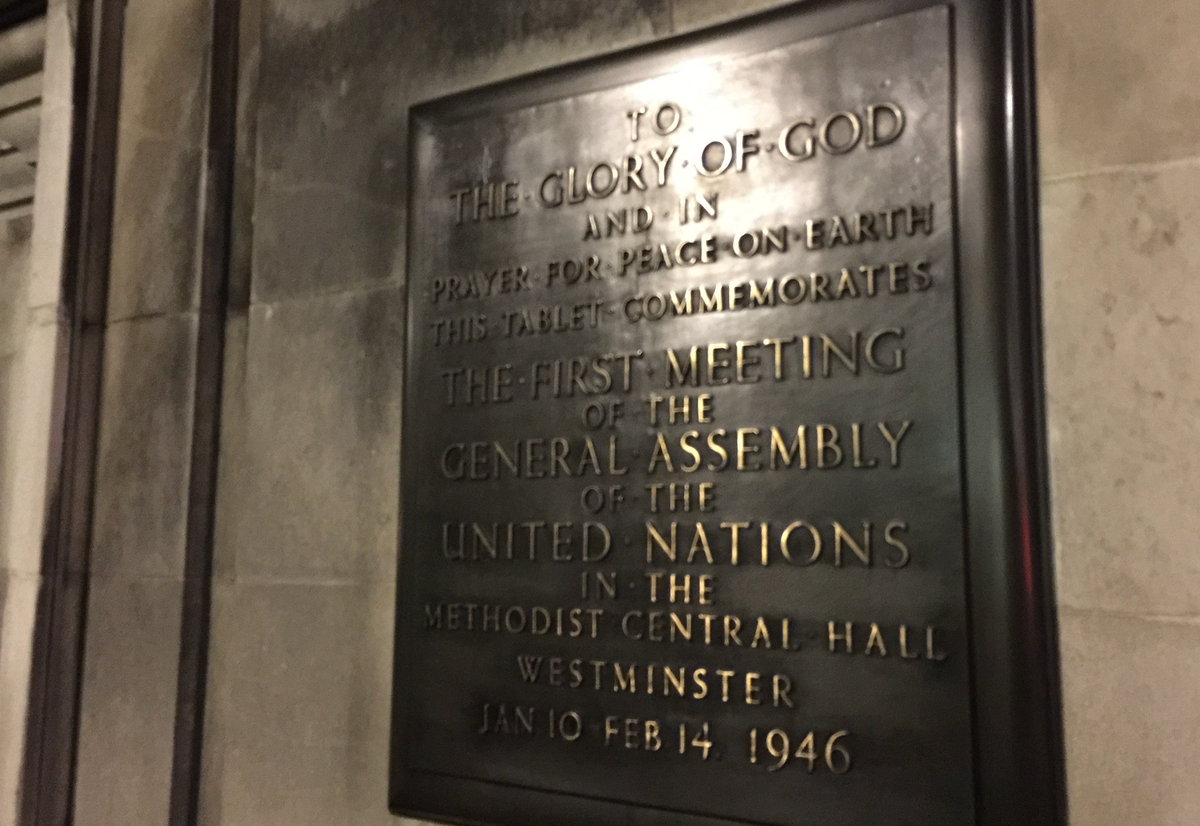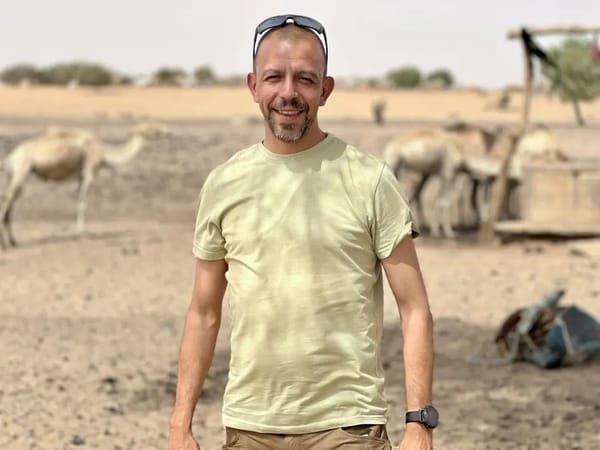“No One Cares about Sudan”

It’s not easy to write about Sudan’s latest round of mass murder. And it’s hard to hear how some people dismiss it.
The recent fall of the city of El Fasher, following an 18-month siege, to the Rapid Support Forces (RSF), has – as many predicted – led to a wave of killings, rapes, and other atrocities. It is “A Bloody New Chapter in Sudan’s Ruinous War”, a two-and-a-half year conflict that has already claimed the lives of tens of thousands, ignited a famine, and displaced at least 13 million people from their homes.
In El Fasher, you could see piles of bodies and pools of blood from space.
Even with the scale of horrors as they are, I see people shake their heads and hear them say things like, “No one cares about Sudan”. It could be from cynicism or an attempt to appear “realistic”. What it actually means is either, “I don’t care about what’s happening there” or “The media I follow don’t care” or “Key governments in the world don’t care.” Or some combination of all three.
But it’s too easy – and too wrong – to dismiss the atrocity-ridden crisis by saying no one cares.
I can assure you, lots of people care. I’ve been working with them for decades. Conflict analysts, human rights researchers, humanitarians, and activists – all both Sudanese and international. Some diplomats also care and are engaged in trying to do something, even if their scope for action is extremely limited by their governments.
Regardless, it’s another example of an enormous crisis with a devastating impact on tens of millions of people, yet one that remains a niche topic globally.
Experts are engaged. Independent think tanks and other groups are trying to raise its profile globally and offering recommendations like sanctions and other means of international pressure on the warring parties and their allies. Their reach is small, though.
Some big media outlets have done outstanding reporting on Sudan. However, it doesn’t bring in the clicks like, say, an article about an “influencer” believing in UFOs or one about Trump’s latest diarrheal digest on social media, so editors’ interest can fade quickly.
Even the poisonous international connections to Sudan’s conflict rarely break into mainstream consciousness. UN experts, NGOs, and international media have highlighted how the United Arab Emirates (UAE) provides military support to the RSF, the group responsible for the most recent mass atrocities in El Fasher, as well as many earlier horrors.
Weapons and military equipment from China, Russia, Türkiye, and other countries have also been identified in the hands of the RSF and their main rival, the Sudanese Armed Forces (SAF). Some countries may even have supplied both sides. The term “blood money” is shorthand for “more blood means more money”.
Still, despite these links, Sudan’s war never quite reaches the top tier of international attention.
Some would first and foremost blame the UN, whose timeless founding ideals have rarely lived up to daily reality. But I think much of the problem lies in the governments that make up the UN.
Specifically, the way governments work on international affairs is inherently limiting. Foreign ministries can follow a lot of issues with researchers and low-level staff, but big decisions on big issues requires the big boss, whose time and attention are in short supply.
As one former foreign minister once explained it to me, a foreign ministry can adequately focus on two or maybe three major international crises at any one time. The level of decision-making needed for the most important calls – something like, say, sanctions – is at the very top. Everything else gets knocked down to action-free statements of “concern”, “serious concern”, or, at best, “condemnation”.
In most European capitals, the top foreign affairs issues right now are:
(1) Trump: his hubristic ineptitude that leaves one-time allies cut off from the usual certainties of global diplomacy and worrying every day about what tomorrow’s tariffs might be; and
(2) Putin: his vicious invasion of Ukraine and the well-founded fear that Russia’s top export – war crimes – will soon flood new markets to the west.
If there is a third issue that foreign ministries can give top-level time to, it’s Israel/Palestine, with the shaky ceasefire in Gaza and unresolved justice issues.
That’s it. There is no room at the top table for any other issue. The ongoing slaughter in Sudan is just as important, if not more important, than some of these three, but it won’t likely be moving up the ranks to become a first-tier topic for our governments any time soon.
Still, that is not the same as saying, “no one cares”. It’s saying, “our governments don’t care enough to make it one of their two or three top priorities”.
That’s a revealing difference. It suggests the problem is deeper, more structural.
If the hierarchy of issues is a direct result of the hierarchy of our institutions, it means the failure to address human catastrophes globally is built into our foreign policy systems. And that’s surely one reason why mass atrocities keep happening, in Sudan and elsewhere, again and again.
If anyone has a way to fix that, let me know.
========
Quick links:
Joe Update: In the last edition of this newsletter, I talked about the case of humanitarian worker Joseph Figueira Martin, who was arrested by Russian forces in the Central African Republic and has spent more than 500 days behind bars on ridiculous charges. He’s finally had his trial, and the result was grim: Joe was sentenced to ten years hard labor. His family has expressed their outrage and condemned the unfair trial, “riddled with procedural flaws”. Family and frieds are hoping now for a “presidential pardon, an evacuation, or an expulsion” as soon as possible.
Trump’s Threat to Nigeria: The title of Crisis Group’s analysis, “Why is President Trump Threatening a Humanitarian Intervention in Nigeria?”, might seem to have a simple answer. The Trump regime is trying to shore up its support among radical Christian nationalist groups in the US by attaching itself to their ignorant and dangerous claims – so often made in fundraising appeals, not coincidentally – about a “genocide” of Christians in Nigeria. The idea that the Trump regime is accurately portraying what’s happening on the ground in Nigeria is absurd, given the White House doesn’t even try to accurately portray what’s happening at home, say, in Portland, Oregon. This is not a regime that cares about facts, only self-serving politics. For those who might want to actually understand the situation in Nigeria, however, the Crisis Group analysis is worth a read.
And, of Course, the Reality Is: “Trump Aid Cuts Kill More Christians Than Jihadists Do”
Fascism in the Shrug: One of the best things I’ve read on America’s descent into authoritarianism to date is Frederick Joseph’s “A Thought on Normalcy in Fascism”. The core of it is this: “History has already shown us how this story unfolds. Fascism is not built only in the camps and cells. It is built in the shrug, the silence, the insistence that life can go on as if nothing has changed.”
Malala’s Moves: Malala Yousafzai has done some very funny new videos, like this one and this one, in promoting her new book. I know some people will find them inappropriate – they expect survivor-activists to be impossibly holy and always deadly serious – but I’ve been very much enjoying the efforts to add humor. It humanizes, reminding us that activists are people, not angels. And it takes nothing away from her serious activism.



